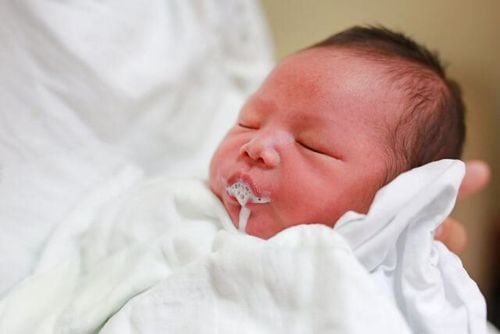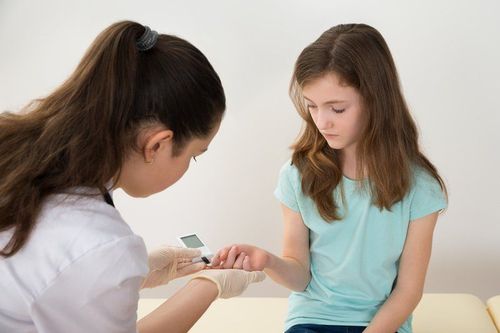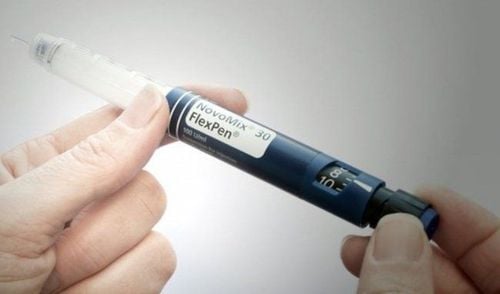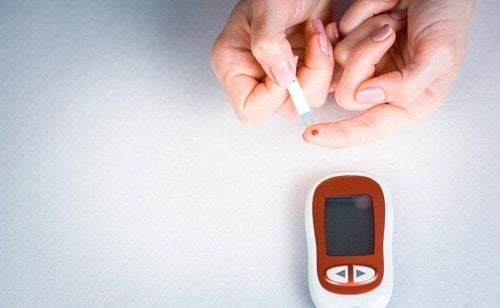This is an automatically translated article.
If your child is suddenly more sleepy or thirsty than usual, it could be a symptom of type 1 diabetes. When there are such signs, the best way to take your child to the doctor is to see a doctor as soon as possible. measures to prevent future complications.1. What is type 1 diabetes in children?
Type 1 diabetes is different from type 2 diabetes. Type 2 diabetes is common in obese adults and can occur in children but usually after the age of 10.
Children have type 1 diabetes when the baby's pancreas makes little or no insulin. This condition is caused by an autoimmune disorder that leads the body's defenses to attack and destroy the cells that make insulin.
2. Symptoms of type 1 diabetes in children
Symptoms of type 1 diabetes in children are:Frequent urination, drinking a lot of water Losing weight, becoming increasingly tired and sick These are classic symptoms of children with type 1 diabetes at first. broadcast.
If your child was previously taught to urinate on the potty and not bed-wetting at night, but naturally begins to wet the bed and the frequency increases, the cause may be diabetes.
Although it is easy for doctors to detect type 1 diabetes in children by checking blood sugar, the most difficult thing is that it is still difficult for parents to recognize when the disease is in the early symptoms.
Type 1 diabetes often appears in children with flu-like symptoms. However, the symptoms that may occur are slightly different in babies, including:
High blood and urine glucose levels on the test Abnormal thirst Dehydration Frequent urination (the baby may need diaper changes) more, or the child used to follow instructions to use the potty or toilet very well but suddenly bedwetting) Very hungry but losing weight Loss of appetite in young children Blurred vision Nausea and vomiting Abdominal pain Weakness and fatigue Irritability and mood swings Diaper rash is severe but with treatment it improves Fruity breath and rapid breathing Fungal infection in girls When insulin is lacking, the body can build up high ketone acid. After initial diagnosis and treatment, some children may go through a period where the body makes enough insulin and it looks like the diabetes is cured, but in reality, over time, the child will need a dose of insulin. with the right dosage to keep blood sugar levels in the normal range.

Trẻ sẽ hay buồn nôn có thể là triệu chứng của bệnh tiểu đường type 1
3. Risk factors for type 1 diabetes in children
Risk factors for type 1 diabetes in children include:
Family history: Any child with a parent or sibling with type 1 diabetes is at risk for developing this condition. Heredity: Certain genes may increase the risk of type 1 diabetes. Race: In the United States, the risk of type 1 diabetes is lower in Hispanic white children than in non-Hispanic children. other races. Certain viruses: Exposure to various viruses can trigger the self-destruction of pancreatic islet cells.
4. Complications of type 1 diabetes in children
Type 1 diabetes can affect vital organs in your body. Therefore, keeping blood glucose levels close to normal for the rest of life can significantly reduce the risk of many complications of diabetes.Complications may include:
4.1 Heart and blood vessel disease
Diabetes increases your risk of developing problems such as narrowed blood vessels, high blood pressure, heart disease, and stroke.4.2 Nerve damage
Excess sugar can damage the walls of the small blood vessels that nourish the patient's nerves. This complication results in tingling, numbness, heat, or pain. Nerve damage usually happens slowly over a long period of time.
4.3 Damage to the kidney
Diabetes can damage a lot of the small blood vessels that filter blood in a child's kidneys.
4.4 Injury to the eye
Diabetes can damage the blood vessels in the retina and lead to vision loss.

Bệnh tiểu đường type 1 có thể khiến bé bị tổn thương mắt
4.5 Osteoporosis
Diabetes can lead to lower-than-normal bone density loss and lead to an increased risk of osteoporosis in adulthood.
If children have symptoms of diabetes, it is best for parents to have their children tested for diabetes to diagnose and treat the disease in time.
With many years of experience in examining and treating diseases in children, now the Pediatrics Department at Vinmec International General Hospital has become one of the major health care centers, capable of examining , screening and treatment of many specialized diseases in children. Therefore, if the child shows signs of poor absorption of nutrients, slow weight gain, growth retardation, etc., parents can take the child to Vinmec International General Hospital for examination and support. advice from qualified doctors.
Please dial HOTLINE for more information or register for an appointment HERE. Download MyVinmec app to make appointments faster and to manage your bookings easily.
Article reference source: diabetes.org, mayoclinic.org, webmd.com












